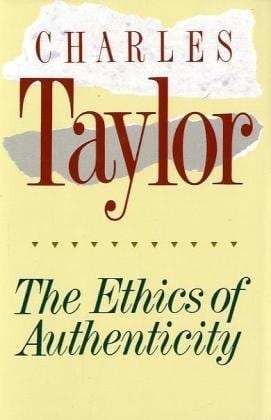The Ethics of Authenticity
This is a book that I find myself recommending a lot to people, since I think it lays out a lot of the issues we face in modern times.

This is a book that I find myself recommending a lot to people, since I think it lays out a lot of the issues we face in modern times.
It's not about authenticity in the way you might normally use the word, where it could possibly relate to how truthful and earnest you might be with others, or a stand-in for integrity. It's referring to how you are able to operate according to your individual whims with respect to the culture around you.
For example, a group of people might create a culture where there's an agreed-upon set of values and acceptable behaviors, with punishments for those that run afoul of them. These could be strict legal consequences, Scarlet-Letter-style ostracism, or something more extreme. Point is, depending on how strict the culture is, and how much it limits individuals in doing things they might otherwise do, it might limit the level of "authenticity" a given individual can practice.
In Western society, and in the broader world, there's a definite trend toward allowing for authenticity and imposing for fewer constraints. As Taylor says in the book, very few people want to go about reversing this, and maybe rightly so. However, there are consequences to shifts in cultures of this magnitude that we have to contend with.
Taylor sets up three malaises, but speaks mostly toward the first two. They are:
- Individualism: "...people are no longer sacrificed to the demands of supposedly sacred orders that transcend them". Taylor states that there are positives here, to be certain. However, with the loss of social ritual and structure, people have increasingly found it difficult to find higher purpose and community, perhaps finding their lives flattened into a "pitiable comfort".
- Primacy of Instrumental Reason: with the historic structures having been dismissed, we are less constrained on where we can apply pure rationality. Durable heirlooms are being replaced with increasingly shoddy and replaceable stand-ins, and "grotesque calculations" on the value of human lives are performed in risk assessments.
- Apathy Toward Government: individualists chasing their own ends will seldom want to participate in government if not for self-fulfilling ends. So long as the government is not openly hostile, large swaths of the population will stay out of the process. This leads to a "mild and paternalistic" government, deemed "soft" despotism by Tocqueville.
I may update this page later with more of my own takes and some related reading, but for the time being, I highly recommend giving this book a read. It punches above its weight at ~121 pages.